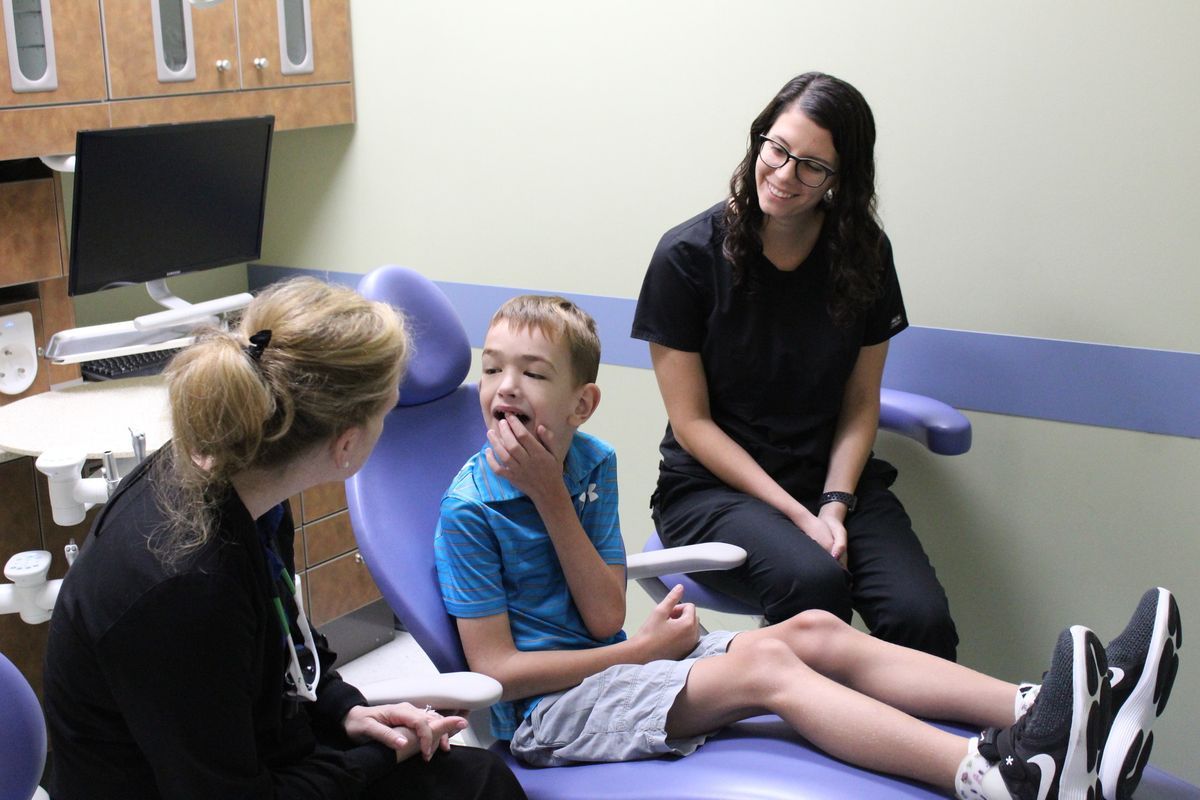Being a parent of a child with disabilities makes you want to do anything you can to make things better for them.
People go through great lengths to “normalize” their children’s lives, from prosthetics to specialized classrooms.
Sometimes, the answer to giving your child a better shot at life is much simpler than anyone had ever thought.
A little boy in Texas, Mason Motz, was born having to work a little harder to keep up with the rest of kids his age, and his family.
Motz was born with Sotos Syndrome which, according to Inside Edition, is “a genetic condition often characterized by a distinctive facial appearance, overgrowth in childhood and learning disabilities or delayed development of mental abilities and movement.”
Mason’s mother said, “Since birth, he’s had delays and issues.”
One of the most difficult aspects of Motz’s challenges was that for the first five years of his life, he had barely spoken a word.
It is hard to imagine being a mother and having your child unable to communicate their needs or tell you that they love you.
Inside Edition reports on the trials Motz faced, as said by his mother:
“Sleeping was always stressful. He would stop breathing. He had trouble eating and swallowing; every single meal we would have to remove something that was choking him. He didn’t get the nutrition he needed. His teeth started having problems.”
It was a trying time for Motz, and many professionals, who were working to address all of his verbal and learning disabilities.
The young boy worked hard to try and overcome his struggles, but this often left him upset, and his parents helpless.
Now, Motz is 6-years-old and considered quite the chatterbox. He loves singing, according to Inside Edition, and hanging out with his little brother, Max.
The excited little boy loves asking his mother about her day when she gets home from work.
This still catches Meredith Motz off guard, having to spend most of her life with her son in a monologue.
She reported to Inside Edition how she reacts to hearing her son speak saying, “It’s like, ‘Oh my goodness, who are you?’”
How is this hard-working boy, who has been in speech therapy since he was one-year-old, speaking all of a sudden?
Was it all his hard work, the professionals therapeutic techniques, or a magical drug?
No, it was much more simple than that.
Due to Mason’s dental issues, he went to see a dentist who specialized in treating kids with special needs, Dr. Amy Luedemann-Lazar at Kidstown Dental.
Having dental work done when you are unable to communicate your fears or ask questions about the procedures, is scary. So, Mason was sedated.
During this time, Luedemann-Lazar found something amazing, something life-changing.
It was discovered that Mason was tongue-tied. This means that he was not non-verbal at all but that he was “just unable to speak”, reported his mom on Inside Edition.
Mason had been under the care of multiple professionals, including a speech therapist, for years, and no one had ever checked to see if tongue-tie played a role in his speech delays.
And it’s not like having tongue-tie is a rare condition that no one has ever heard of. It is a very common problem with more than 3 million cases a year, according to Mayo Clinic.
Usually having tongue-tie is discovered as a baby when they have difficulty eating, but sometimes it is detected when speech begins because it causes impediments.
Inside Edition tells us more about the common problem:
“A tongue-tie, formally known as ankyloglossia, is a condition present at birth where an unusually short, thick or tight band of tissue tethers the bottom of the tongue’s tip to the floor of the mouth, restricting its range of motion.”
After Mason received a non-invasive treatment for his tongue-tie by Luedemann-Lazar, the positive effects were seen right away.
A very enthusiastic and shocked mother reported that
“Within 12 hours, he was talking and it was amazing.”
Now that Mason can communicate and eat better, he has had a complete transformation.
He is in better health, he is doing better in school, and is sleeping better from not having to contend with sleep apnea and snoring.
Checking for tongue-tie is extremely easy for a medical professional, and should be part of a regular exam by the pediatrician after birth.
If this exam were to be routine, babies would not have to struggle for however long while parents frantically try to find out why their children are not advancing mentally and physically.
Most breastfeeding experts, such as Le Leche League representatives, are familiar with this condition because it drastically affects a baby’s ability to breastfeed.
If you suspect your child has a tongue or lip tie, a trained ENT or pediatric dentist should be consulted right away. Local and online support groups are a great resource to help you on your journey.
Don’t let your child go through years of misguided diagnoses. Have them checked for tongue-tie right away.
If they are tongue-tied, you have a quick and easy fix, if they aren’t, at least you know and can start a plan of action.
Please let us know in the comments section if you have any experience with tongue-tie, or having a delayed diagnosis that caused you and your family struggles.

